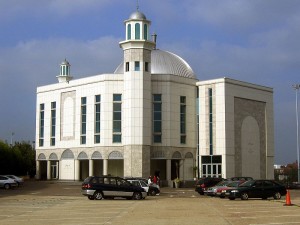- BY Colin Yeo

Ahmadis and fast track asylum appeals
THANKS FOR READING
Older content is locked

A great deal of time and effort goes into producing the information on Free Movement, become a member of Free Movement to get unlimited access to all articles, and much, much more
TAKE FREE MOVEMENT FURTHER
By becoming a member of Free Movement, you not only support the hard-work that goes into maintaining the website, but get access to premium features;
- Single login for personal use
- FREE downloads of Free Movement ebooks
- Access to all Free Movement blog content
- Access to all our online training materials
- Access to our busy forums
- Downloadable CPD certificates

Many thanks to Eric Fripp of Lamb Building for the following note:
On 8th May 2013 in the First Tier Tribunal (Immigration and Asylum Chamber) at York House, a panel consisting of First Tier Tribunal Judges Woodcraft and Samimi dealt with two cases (references AA/04010/13 and AA/04016/13) in which asylum claimants accepted as being Ahmadi Muslims from Pakistan sought adjournment and transfer out of the Detained Fast Track (“DFT”).
In each case the Respondent Secretary of State for the Home Department (“SSHD”) had accepted that the Appellant was an Ahmadi Muslim. SSHD was aware that in each case the Appellant had approached the Ahmadi Muslim Association UK seeking collation and production to the Tribunal of material from the records of the Ahmadi Muslim Community in Pakistan which was likely if produced to support the appeal. The Ahmadi Muslim Association had in each case indicated a timescale of several weeks for the completion of its efforts, which could not be completed within DFT timescales.
The Appellants, represented by Roelens Solicitors Wimbledon, instructing as Counsel Mr Eric Fripp and Miss Althea Radford of Lamb Building, sought adjournment and transfer from the DFT on the basis that evidence of the AMA(UK) confirming that any particular asylum seeker is an Ahmadi (or failing to do so) and identifying the past practices and activities of an Ahmadi asylum seeker, was patently central to the enquiry required in such a case. In MN and others (Ahmadis – country conditions – risk) Pakistan CG [2012] UKUT 389 the approach of the Tribunal is one which stresses the importance of evidence on such issues: see paras 120, 122, 123 thereof. Against this, maintenance in the DFT of cases in which AMA(UK) evidence was reasonably sought was contrary to SSHD’s relevant policy as set out in the current version of the Asylum Process Guidance, which noted (at 2.2 “Quick Decisions”) that
Cases where a quick decision may not be possible may include (but are not limited to):
Where it is reasonably foreseeable that further enquiries (by UKBA or the applicant) are necessary to obtain clarification, complex legal advice or corroborative evidence, which is material to the consideration of the claim, where those enquiries and the decision cannot (as is foreseeable) be concluded within normal indicative timescales;
The Tribunal in each case adjourned the appeal and transferred it out of the DFT, directing hearing on new dates not before 6 weeks had passed. It indicated that it considered that the appeals could not be kept in the DFT without unfairness given that enquiries by AMA(UK) were underway and that the Tribunal in MN and others expressly pointed to such evidence as important. It also indicated that a note of its reasons would be completed and could be referred to in order to avoid repetition of the circumstances attending these appeals prior to adjournment and transfer from the DFT.
SHARE

